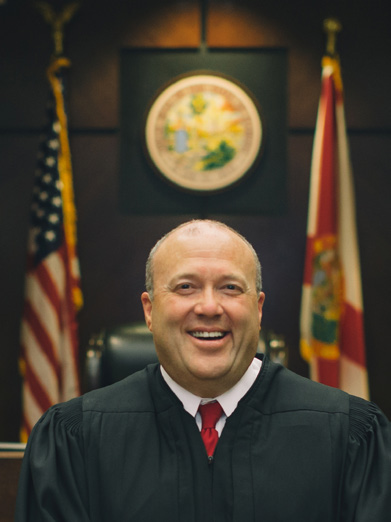
Injunction junction, what’s your function?
Ask Judge Smith

Part 2 of a 4-part series that is running as part of Domestic Violence Awareness Month.
When I was a boy, I watched Saturday morning cartoons. My favorite was “The Pink Panther Show.” Back then, television networks developed educational programs that promoted science, math, and language. Perhaps you recall the Schoolhouse Rock song, “Conjunction, Junction, What’s Your Function,” which inspired my column title.
Q. Judge Smith, how big of a problem is domestic violence? Thank you, Emily.
A. I’ve tried hundreds of protective injunction cases and read thousands of probable cause affidavits. You can take it from me that violence and stalking are chronic societal problems addressed daily in our criminal and civil courts.
Domestic violence is often committed by “control freaks” who exert power and control over their victims. The perpetrators range from lost souls to sadistic bullies. Many abusers have been the victims of domestic violence and are repeating learned behaviors. Some abusers suffer from mental health issues, substance abuse addictions, or both.
Many people who commit acts of violence or stalking face criminal prosecution. Criminal defendants are presumed innocent, and most of them are entitled to pretrial release. When the victims of crimes appear to be in imminent danger, courts can order defendants to have no contact with them. Criminal defendants who violate their no-contact orders face arrest, time in jail, and additional criminal charges.
Civil courts protect the victims of violence and , too. A protective injunction is an order issued by a family law court that commands a person to do something or refrain from doing something. Generally, civil injunctions prohibit abusers from contacting their victims. Often, civil injunctions prohibit abusers from having any access to firearms, ammunition, or other weapons.
Victims of domestic violence, dating violence, repeat violence, sexual violence, or stalking can petition circuit courts for protective injunctions. An injunction’s function is to protect people from being harmed by their abusers.
Depending on the circumstances, including parties’ prior histories, courts can issue pre-hearing temporary injunctions to promote the victims’ safety until the cases have been tried and decided on the merits. Alleged abusers must be served with notice and provided an opportunity to be heard to satisfy the requirements of due process of law.
Each party has the right to counsel, but courts do not appoint publicly funded lawyers to represent those who cannot afford counsel. As a result, most parties represent themselves at their injunction hearings.
People served with temporary or permanent injunctions against them must obey their court orders. If not, they will face arrest, prosecution, and incarceration. Next, we will cover the five protective injunctions the legislature enacted.
The Honorable J. Layne Smith is a Circuit Judge and the author of “Civics, Law, and Justice — How We Became U.S.” Send your questions to askjudgesmith@gmail.com.







